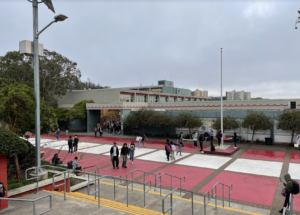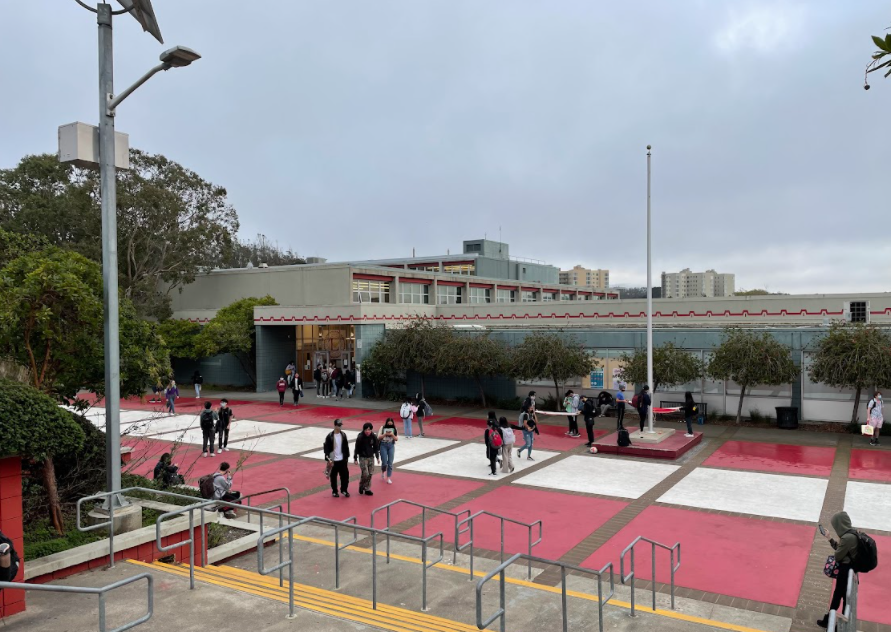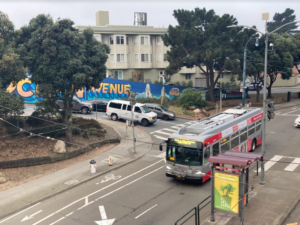
Two San Francisco Unified School District (SFUSD) parents — Autumn Looijen and Siva Raj — aggrieved with SFUSD’s performance during the COVID-19 pandemic, took action to bring about change.
Despite having no previous political organizing or fundraising experience, they set themselves on a mission to recall three Board of Education (BOE) commissioners for their attitude towards the community and their approaches to learning during the pandemic. Looijen and Raj have built a movement to recall Gabriella López, Alison Collins and Faauuga Moliga.
Looijen and Raj were spurred to action by BOE Commissioner Alison Collins’ tweets from 2016, in which she targeted the Asian-American community. The tweets were brought to light in March 2021. 17 of San Francisco’s elected leaders, including Mayor London Breed, called for Collins to resign. Collins sued the school district and her fellow commissioners for $87 million. Collins’ tweets especially played a large role in the turn out of the BOE recall.
Looijen and Raj collected 8,500 signatures in the first two weeks, mainly arguing that the BOE had not prioritized SFUSD students during the COVID-19 pandemic, in addition to Collins’ tweets.
In January 2021, the BOE began a time-consuming process to rename 44 public schools that are currently named after historical figures with ties to racism and sexism.
At this time, many believed the board should have been prioritizing the needs of kids and getting them back to in-person learning.
In an interview, Looijen described the renaming process as symbolic and likened it to “changing the name above the door when the kids inside the walls can’t read.”
The year in virtual learning was characterized by turmoil and disorder. High school students reported difficulty focusing, attending classes and battling depression at home, especially students from minority communities.
According to the San Francisco Examiner, SFUSD identified 910 out of 57,000 students who had less than 40 percent attendance after the COVID-19 pandemic and needed re-engagement. Under state law, 40 percent attendance was required during distance learning.
SFUSD also found that “half of those disengaged students last semester were Latino, a quarter were Black” and “32 percent were English learners.” Additionally, 70 percent of these students were socioeconomically disadvantaged. High school students made up 63 percent of the group of disengaged students.
A few causes of this disengagement can be a lack of resources in learning from home, unideal and distracting learning environments, difficulty with the lack of structure and support in online learning, changed life circumstances for many students and more.
SFUSD high school students did not return to in-person learning until August 2021. Community members questioned the BOE’s focus on renaming schools while many SFUSD students struggled in virtual learning and failed to keep up with their classes.
In a family that has students attending public and private schools, Looijen quickly noticed that students attending school back in person were much happier than students attending virtual school.
A second issue for those who want to recall the board is the change they instituted in Lowell High School’s admission policy.
During February 2021, after only five days of consideration, the BOE voted 5-2 to change Lowell High School’s historic merit-based admission system to lottery admissions.
The BOE changed Lowell’s admission policies in an effort to integrate more Black, Brown and Hispanic students in the school.
Community members, especially those in favor of Lowell’s selectivity, argued that the BOE failed to seek community input and engagement on the issue before making the decision. Hayden Miller, a Lowell student who attended some of the BOE meetings, said he felt the BOE did not “care what the public had to say.”
On November 19, 2021, the San Francisco Superior Court nullified the February ruling because the BOE had violated the Brown Act.
The Brown Act — which applies to California city and county government councils, commissions, agencies and boards — states that government meetings must be always open, available and accessible to the public.
The Lowell Alumni Association, The Friends of Lowell Foundation and the Asian American Legal Foundation argued that the BOE failed to provide a sufficient description of the resolution to change the admissions system in the minutes of the agenda. The admissions decision has now been overturned.
Over the last two years dissatisfied SFUSD parents have pulled their students out of SFUSD schools. This led to 3,499 unenrolled students, according to the San Francisco Chronicle. These unenrollment rates have only exacerbated SFUSD’s current $116 million budget deficit and loss of revenue for the 2021-22 school year.
In October 2021, The California Department of Education intervened to support the district’s fiscal crisis. A letter from Tony Thurmond, the State Superintendent of Public Instruction to Superintendent Vincent Matthews, said that the school board will have to cut 13% of its budget in the 2022-23 year to meet budget requirements. Until the BOE has a hold of a consistent and balanced budget, the district has to stop hiring more staff and engaging in non-compulsory spending.
SFUSD has until December 15, 2021 to propose a plan that addresses its budget shortcomings to the California Department of Education office.
On November 19, 2021 Mayor London Breed announced that city officials can loan SFUSD $26.6 million if they have a comprehensive plan to control the budget, in order to help the SFUSD get back on the right track. The plan still requires support from the BOE.
In order to mitigate the deficit, it is necessary to build back the enrollment rates by attracting families back to San Francisco’s public schools.
Looijen suggested keeping 8th grade algebra, bringing back the citywide arts festival and having competent leadership that would push for the needs of SFUSD families. Looijen explained that it was unnecessary to be “deeply steeped in politics to make a difference.”
Looijen explained that through transparency and building community, the campaigning and fundraising process for the recall came much easier. Looijen and Raj prioritized building community, identifying strategies and working from the ground up before looking for funding.
Looijen described starting the recall campaign as a “groundswell of anger waiting for someone to lead it.” Looijen and Raj made history and acted in order to hold the BOE accountable.
This recall was the first BOE recall campaign in San Francisco in nearly 40 years. It was organized with the help of 1,400 Facebook group members and nearly 1,000 volunteers. They helped to collect around 231,000 signatures total. The recall election will be on February 15, 2022.







